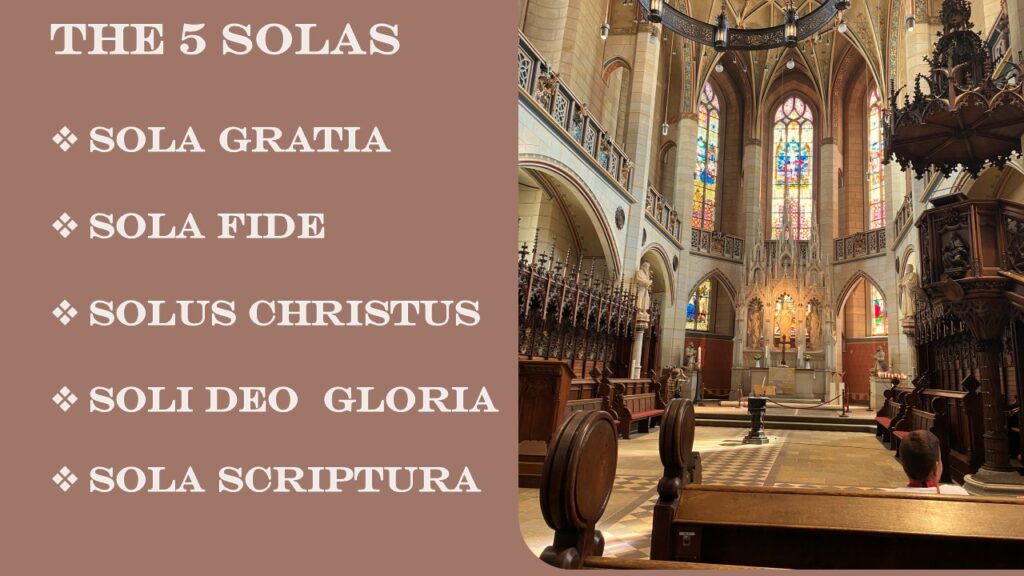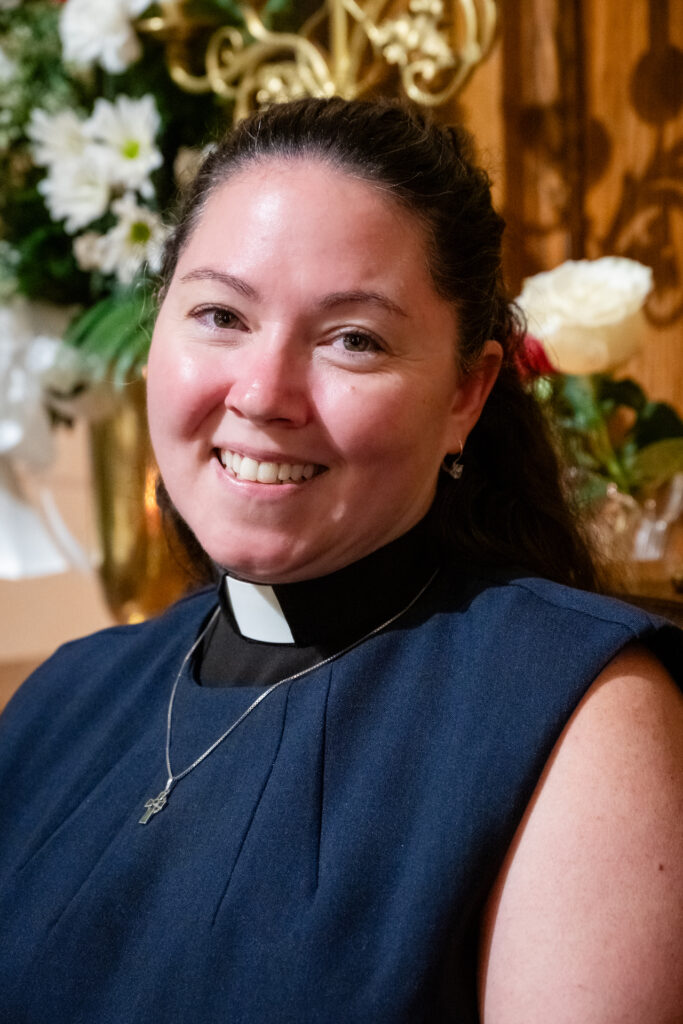“WHY ARE YOU FRIGHTENED?”
The Gospel reading from Luke 24 for April 14, the Third Sunday of Easter, tells of an incident that happened on Easter Sunday evening – after Jesus had spent some time with two of His followers on the road to Emmaus. According to verses 33-35, after Jesus suddenly disappeared, the Emmaus disciples “got up and returned to Jerusalem and found the eleven and their companions gathered together. They said, ‘The Lord has risen indeed!’ Then they told them what had happened on the road, and how Jesus had been made known to them in the breaking of the bread.”
I believe that this is the same time as the appearance of Jesus to His disciples recorded in John 20: 19ff (the Gospel reading for the Second Sunday of Easter), when Thomas was not with them. Luke 24: 36-38 tell us what happened next. “Jesus himself stood among them and said to them, ‘Peace be with you.’ They were startled and terrified and thought that they were seeing a ghost. He said to them, ‘Why are you frightened, and why do doubts arise in your hearts?’”
That is a good question for all of us – Why are you frightened, and why do doubts arise in your hearts?
We all have many reasons to be frightened and many reasons for doubts to arise in our hearts.
1. Afraid of the future
First, many are afraid of the future. We all have many reasons to be afraid of the future.
I have talked with many people who are fearful for the future viability of their congregations. They see their aging and diminishing membership. They wonder whether they will be able to continue to afford a pastor, and even if they can afford one, whether they will be able to find one. Many congregations have been without a pastor for a long time.
I have talked with people who face deep financial insecurities. Inflation has taken a huge toll and they are fearful of what will happen if their financial resources run out. They do not like the idea of being dependent upon others, and they wonder if there will be someone to depend upon if they do become dependent upon others. Many are deeply concerned about health issues – their own health issues and the health issues of those whom they love.
We all have plenty of reasons to be fearful for our country and our culture when the federal government honors the Transgender Day of Visibility instead of Easter and will not allow any religious symbols in its celebration of Easter.
For those who are afraid of the future Jesus gives unmistakable evidence of His resurrection. In Luke 24: 39-43 He showed them His hands and His feet and then took a piece of broiled fish and ate it in their presence. In the words of the one Gospel song, “Because He lives, I can face tomorrow.”
2. Afraid of the past
Second, many are afraid of the past. We all have many reasons to be afraid of the past.
For those who are afraid of the past Jesus gives the promise of forgiveness of sins. In Luke 24: 44-48 He opened their minds to understand the scriptures and then said to them, “Thus it is written, that the Messiah is to suffer and to rise from the dead on the third day, and that repentance and forgiveness of sins is to be proclaimed in his name to all nations.” Repentance and forgiveness of sins. Repent is what we need to do. Forgiveness is what we need to receive.
In contrast, a friend and colleague from the synod in which I was rostered before I retired shared with me a brilliant theological analysis of critical race theory and DEIA ideology. As the apostle Paul stated in 2 Corinthians 3:6, “The law kills, but the Spirit gives life.” The demands of the law will always be relentless. You can never do enough. In the same way, no matter how much I grovel and repent of my own racism and the racism of my ancestors and no matter how much I try to compensate for all past offenses, grievances, and injustices, it is never enough.
Paul also wrote in Romans 7: 24, “O wretched man that I am! Who can deliver me from this body of death?” If you are white – or even worse, if you are a white male – or worst of all, if you are an older, heterosexual, cisgender, Christian white male – nothing can deliver you. You are hopelessly racist. No matter how hard you may try and no matter what you may do, you will always be racist. You cannot not be racist. The systems that privilege and empower you must be dismantled. All power and privilege must be taken away from you.
I recently attended a memorial service where we sang the hymn, “When Peace like a River.” I was struck by the words of the third verse –
“He lives – oh, the bliss of this glorious thought;
My sin, not in part, but the whole,
Is nailed to the cross, and I bear it no more.
Praise the Lord, praise the Lord, O my soul!”
With critical race theory and DEIA ideology, there is no possibility of grace, forgiveness, deliverance, and release. There is only constant confession, repentance, guilt, failure, not measuring up, not doing enough, and groveling. With critical race theory and DEIA ideology, you will never be able to say, “It is well with my soul.”
How sad and how serious it is that critical race theory and DEIA ideology sell people out to a taskmaster that will never be satisfied. They imprison people in a system from which there is no escape.
How much better what Jesus said in Luke 24: 47 – “Repentance and forgiveness of sins is to be proclaimed in his name to all nations.” It is only in and through Jesus that we can and will find hope, grace, peace, forgiveness, and reconciliation. It is only through Jesus that we can say with the apostle Paul in Romans 7: 25, “Thanks be to God!”
3. Powerless in the present
Third, many feel powerless in the present. We all have many reasons to feel powerless in the present. For those who feel powerless in the present Jesus promises power from on high.
In verse 49 He said to the disciples, “See, I am sending upon you what my Father promised; so stay here in the city until you have been clothed with power from on high.” Power from on high is what we all need. And power from on high is exactly what the disciples received on the Day of Pentecost.
In contrast, as I read the resolution that led to the creation of the ELCA’s Commission for a Renewed Lutheran Church as well as minutes of their meetings, it is painfully obvious that they are building a church that is based not upon the Scriptures but upon critical race theory and DEIA ideology. The 2022 ELCA Churchwide Assembly – as well as the Commission – are making the main mission of the church not to fulfill Christ’s Great Commission but to dismantle systemic racism. They are making the main mission of the church not what we have been commanded and empowered to do, but instead they are taking on an impossibly huge task with merely human resources.
How could they feel anything other than overwhelmed and hopeless? I often wonder, if people’s main mission in life is to dismantle systemic racism, why would they focus their efforts in the church? No wonder there is and will continue to be a huge shortage of pastors.
Because everything is at stake and in the Name of the One who gives hope for the future, release from the past, and power in the present,
Dennis D Nelson
Executive Director
[email protected]












